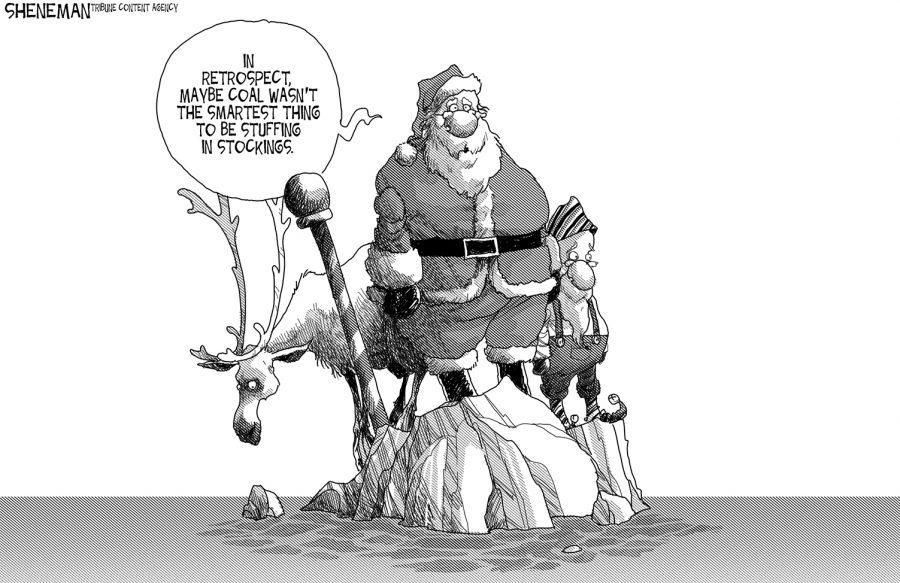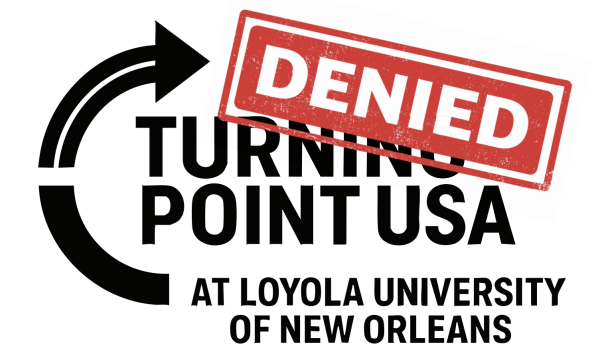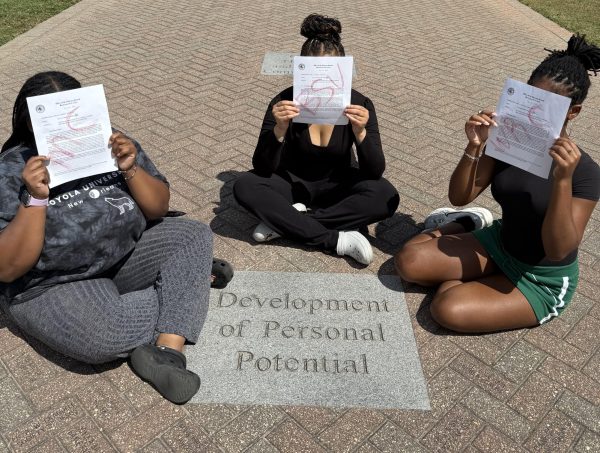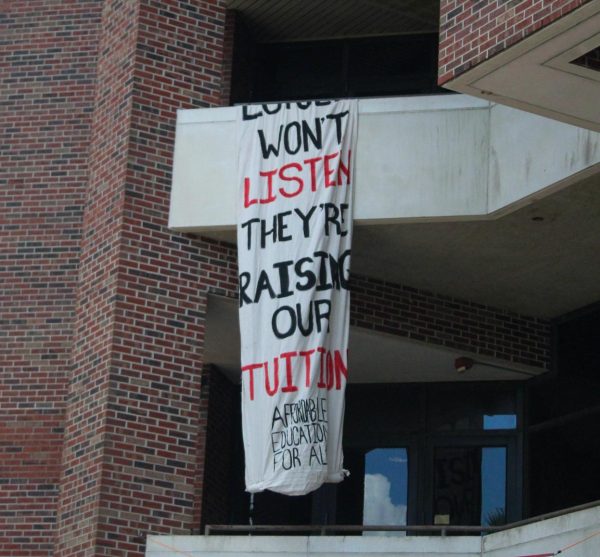Editorial: Loyola should think hard before divesting
A movement to make Loyola University divest from fossil fuels has exploded on campus. The Rev. Kevin Wildes, S.J., university president sent out an email saying that he would begin conversations about divesting from coal with the Board of Trustees and the Finance Committee. We want to throw our hat in the ring by pointing out that Loyola’s investment policy should not be based on feel-good proposals, but instead allow flexibility to make profit-maximizing investments that help fund our university.
In its petition, which 310 people have signed to date, Divest Loyola says that only when we divest from fossil fuel investments will we “honor the 450 years of Ignatian tradition” and “restore the ideals of our institution.” Those are necessary commitments, but we must first ensure that we even have an institution before we wax eloquent about ideals and tradition.
In a time when the university is trying to avoid a financial crisis, every dollar matters. It seems financially unsound to cut off a source of income when what we need is more of it.
Compare the TIAA-CREF Social Choice fund — which screens its investments based on ethics — with the S&P 500 ETF — which measures the 500 biggest companies on the stock market, and doesn’t take into account any ethical concerns. The five-year average returns from the social choice fund were 9.75 percent, and the S&P 500 index showed a five-year return of 11.44 percent.
If Loyola invested its entire $200 million endowment in the social choice fund five years ago, it would have grown to $325 million. If Loyola had invested the same amount in the S&P 500, it would have grown to $353 million. The difference would be almost $30 million, or $6 million per year.
Of course, students can pick up the tab. $6 million spread over the 310 people who have signed the petition to divest equals out to around $20,000 per person, per year. Spread over the entire student body — which has overwhelmingly not asked for divestment — the number goes down to around $700 each semester, per student.
One might object that $700 per semester is worth saving New Orleans from going underwater. But if Loyola divests from fossil fuels, will that do anything to lower the projected six inches of sea level rise? Loyola divesting from fossil fuel companies won’t change the fossil fuel industry or cut carbon emissions — in south Louisiana, the United States or anywhere else in the world — but it could change the future of our college for the worse.
If Loyola passed along its stake in fossil fuel companies to other investors, the world would not be a more moral place. Now, our humble Jesuit institution with a robust commitment to social justice is the beneficiary of these investments. If we divested from them, we would be passing that profit onto investors who might not share our system of ethics or use that profit justly. Investments don’t dissipate once they’re divested. Is it more ethical for money to flow into our classrooms, or executive offices?
The petition issued by Divest Loyola argues that fossil fuel emissions disproportionately impact people of color, indigenous communities and lower-income neighborhoods. These are also the people who are most reliant on affordable energy, and vulnerable to rises in energy costs. Perhaps those who are privileged enough to have a college education or spend all their time in academia can afford solar panels, wind turbines and electric cars, but the less economically well off might not be able to.
According to one climate science research organization, virtually all of New Orleans could be underwater by 2100 — regardless of whether the world reduces carbon emissions. So, even if we wanted to give up industrialized civilization and abandon fossil fuels entirely to reverse the direction of climate change, we won’t solve the problems that Divest Loyola wants us to.
Instead of devoting all of our time to efforts which won’t lead to a more ethical society, won’t make any meaningful gains to stop the impact of climate change and could harm the university, we should be pressuring the city of New Orleans to start planning on how we can adapt to our changing environment. It’s easy to see universities playing a role in this planning, so it would be a shame if Loyola didn’t have the finances available to
do that.

R. Gage is an economics junior and the Managing Editor for Electronic Properties. He was previously a guest columnist and the Opinion and Editorial Editor....












Polly Schwiptonite • May 14, 2016 at 6:09 pm
I frightens me to see u talkin about that. New Orleans underwater by 2100? New Olreans Underwater by 2100? Ray Kurzweil, Google CTO, says that the machine singularity will be well on its way to building a machine planet by the end of the century. Other words, you’re going to have to do more research before making such bold claims.
Also I’d liek to point out that the sample time of S&P500 was post-2008 recession which would fuck with the data.
Jack Hanson • May 13, 2016 at 5:39 pm
It is apparent that the writer has not studied past divestment movements. They have successfully created social, economic, and political pressure against products such as tobacco, cluster bombs and, most famously, companies operating in Apartheid South Africa in the 1980’s. Along those lines, the current fossil fuel divestment movement is having a large impact on the political and economic discussion in this country and worldwide.
The idea that “as long as it makes us money, it’s ok!” is incredibly dangerous. It is important that institutions, particularly institutions with moral, ethical, or religious frameworks, not remain complacent– or worse, profit from– issues that are so negatively impacting the livelihoods of millions of people, including in their own backyard.
Finally, the S&P 500 minus the largest fossil fuel companies has consistently OUTPERFORMED the S&P 500: http://fossilfreeindexes.com/wp-content/uploads/2016/01/FFIUS-FACTSHEET_Q42015_18-Jan-2016.pdf It has only done slightly better, and that could change, but the author’s argument that it would massively hurt the endowment flies in the face of the reality of the actual performance of these fossil fuel companies in the stock market over the past several years. If Loyola had divested of fossil fuel companies several years ago, the endowment would be larger today.
Fionn Hunter-Green • May 11, 2016 at 5:39 pm
Using some clunky math, Mr. Counts calculates that a choice of profit maximization vs. ethical investment comes to $6 million per year. He seems not to know the difference between a loss of actual profits is versus a loss of potential profits. His numbers come from an entirely arbitrary and imaginary choice of investment opportunities (TIAA-CREF Social Choice fund and S&P 500 ETF). Divest Loyola has never asked for the board of trustees to move investment to TIAA-CREF Social Choice fund.
While he clearly has passed an econ. class, he misses the point entirely of what the divestment process seeks to accomplish. The divestment process will be part of a larger social movement that rejects the normalized practices that are bringing about an ecological nightmare. The author is correct in stating that this specific process of divestiture will not stop climate change or the for-profit prison system, but does not realize that his position, popular as it may be, will soon be thought of as archaic.
While I am a member of Divest Loyola, I do not in any way represent it or speak for it.